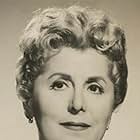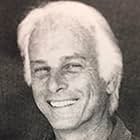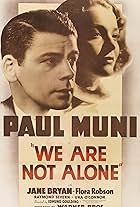IMDb RATING
6.8/10
1.1K
YOUR RATING
An aspiring journalist's story of his aged uncle doctor leads to the uncle's life being profiled on TV.An aspiring journalist's story of his aged uncle doctor leads to the uncle's life being profiled on TV.An aspiring journalist's story of his aged uncle doctor leads to the uncle's life being profiled on TV.
- Nominated for 2 Oscars
- 1 win & 5 nominations total
Jay Adler
- Abelman's Feuding Neighbor
- (uncredited)
Fred Aldrich
- Fisherman on Boat
- (uncredited)
Leon Alton
- Gattling's Assistant
- (uncredited)
Godfrey Cambridge
- Nobody Home
- (uncredited)
Helen Chapman
- Miss Bannahan
- (uncredited)
Harry Davis
- Dannenfelser
- (uncredited)
Pat DeSimone
- Gang Member
- (uncredited)
Featured reviews
The Last Angry Man explores the themes of living with integrity and not being corrupted or co-opted by the world's materialism. Paul Muni plays a Jewish doctor living in a Brooklyn neighborhood that has, to use a euphemism, changed. He continues to treat the neighborhood's residents for minimal fees, including a very young Billy Dee Williams, who plays a gang-banger, angry at the world, who Muni believes has a brain tumor.
Muni's nephew is an aspiring journalist who is caught up in glitz and glamor. When Muni saves the life of a young black woman who has been dumped on his doorstep after an assault, his nephew senses an opportunity and writes the story in the newspaper. A television producer picks up on it and sees profiling Muni on his new television program as his ticket to fame.
Muni's character is really too complex to portray completely in this film, but the interplay between the doctor and his patients portrays him as both compassionate and moral. He relates on a spiritual level to the character Billy Dee Williams plays, sensing that both of them are rebelling in their own ways against injustice and abuses of power. Dr. Abelman's last act is to visit Williams in jail rather than proceed with his greatly anticipated television appearance, reinforcing his determination to live a life of integrity and in the words of Thoreau (an author quoted frequently throughout the film), "march to the beat of a different drummer."
Muni's nephew is an aspiring journalist who is caught up in glitz and glamor. When Muni saves the life of a young black woman who has been dumped on his doorstep after an assault, his nephew senses an opportunity and writes the story in the newspaper. A television producer picks up on it and sees profiling Muni on his new television program as his ticket to fame.
Muni's character is really too complex to portray completely in this film, but the interplay between the doctor and his patients portrays him as both compassionate and moral. He relates on a spiritual level to the character Billy Dee Williams plays, sensing that both of them are rebelling in their own ways against injustice and abuses of power. Dr. Abelman's last act is to visit Williams in jail rather than proceed with his greatly anticipated television appearance, reinforcing his determination to live a life of integrity and in the words of Thoreau (an author quoted frequently throughout the film), "march to the beat of a different drummer."
Paul Muni is excellent as a doctor in Brooklyn. I remember doctors like him, from when I was a child. They'd leave their dinners to get cold if a patient needed help. Now they mostly give three minutes of their time at most.
The family is allowed to be clearly Jewish. I wonder, though, what the word galoot is about. Muni keeps using it. I think of it as a sort of comic strip term, like calling a boxer a big galoot. Luther Adler, as his friend, another doctor, using some Yiddish.
David Wayne is thoroughly convincing as the crass TV man who decides doc's story would sell pills for his network's sponsor. Everyone is good, really,.
Though the patient we see Muni treating is black, it is not a forced racial drama. His played by Billy Dee Williams and the fine Claudia McNeil is his mother.
I feel this movie tugging on my sleeve and saying, "Hey! Hey! Look how significant I am!" It isn't a great movie but it does its job well and Muni is superb.
The family is allowed to be clearly Jewish. I wonder, though, what the word galoot is about. Muni keeps using it. I think of it as a sort of comic strip term, like calling a boxer a big galoot. Luther Adler, as his friend, another doctor, using some Yiddish.
David Wayne is thoroughly convincing as the crass TV man who decides doc's story would sell pills for his network's sponsor. Everyone is good, really,.
Though the patient we see Muni treating is black, it is not a forced racial drama. His played by Billy Dee Williams and the fine Claudia McNeil is his mother.
I feel this movie tugging on my sleeve and saying, "Hey! Hey! Look how significant I am!" It isn't a great movie but it does its job well and Muni is superb.
Paul Muni came out of retirement from films to make this movie--the first in about a dozen years. According to Robert Osborne (from Turner Classic Movies) this was because Muni was so incredibly difficult to work with that he was virtually blackballed from films. However, you'd never suspect this when you see the film as his performance is flawless. Perhaps it was because Muni might have been playing a part close to heart--a cranky old doctor who was devoted to his patients but also who wasn't afraid to say exactly what was on his mind! The story begins with cranky old Paul having a patient literally dumped on his front steps in the poor part of Brooklyn. You learn that despite working as a doctor for many years, he wasn't concerned with wealth or success as many people would see it. This devotion to duty resulted in a small article in the newspaper and a TV producer (David Wayne) decided an interview show about the doc would be great television. The problem, however, is that cranky old Paul has no interest in fame and getting him to agree to be on TV was a major problem. Just when you think that perhaps he'll finally do the show, other events intercede--leading to a touching but perhaps a bit too melodramatic an ending. I liked the way the film ended but my wife thought it was a bit too much to believe. Regardless, you can't ignore the rest of this lovely film--the acting and writing were exceptional. With minimal stunts and action, the film managed to entertain and make you think.
Overall, a powerful and interesting film that is perhaps marred a tad by a bit too much sentimentality and melodrama--but not so much that you should avoid the movie.
PS--Didn't David Wayne's boss remind you of Larry Tate from "Bewitched"? See the film and you'll understand what I mean.
Overall, a powerful and interesting film that is perhaps marred a tad by a bit too much sentimentality and melodrama--but not so much that you should avoid the movie.
PS--Didn't David Wayne's boss remind you of Larry Tate from "Bewitched"? See the film and you'll understand what I mean.
Gerald Green adapted his novel "The Last Angry Man" to the screen and the movie brings the affection for his characters lovingly to life. The role of a strong-minded general practitioner in a poor neighbourhood is a lovely swan song for iconic actor Paul Muni. We view the life of this dedicated doctor through the eyes of a television producer played by David Wayne. A program is planned on the life of this doctor and through putting the show together the harried producer gains a new friend and a new perspective on his hectic lifestyle. The wonderful David Wayne and an exceptional cast of professionals bring this sweetly sentimental yet timely story of ideals amidst the rat race to life.
This is the story of an elderly Jewish doctor who lives and works in the Brooklyn slums. He is dedicated to his work and his patients. The movie revolves around his nephew's attempts to produce a documentary based on the doctor's life. The movie is ok, but Paul Muni shines. He received an Oscar nomination for this, his last role. Billy Dee Williams makes his movie debut as one of the doctor's patients. He plays a young thug with a brain tumor. He's a difficult patient and the doctor has to chase after him in order to treat him. If you look closely at the girl left on the porch in the opening scene, you'll see that it's Cicely Tyson, also an unknown at that time.
Did you know
- GoofsAs Dr. Abelman is lying in bed, he lets go of Dr. Vogel's hand in consecutive shots.
- Quotes
Dr. Sam Abelman: We owe him something, Woody, as rotten as he is.
- ConnectionsReferenced in Let No Man Write My Epitaph (1960)
- How long is The Last Angry Man?Powered by Alexa
Details
- Runtime1 hour 40 minutes
- Color
- Aspect ratio
- 1.85 : 1
Contribute to this page
Suggest an edit or add missing content




































